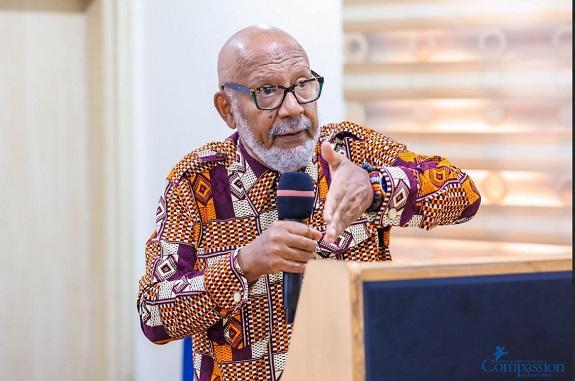Experts highlight teacher motivation schemes, other initiatives to ensure safe school systems
Speakers at an event to mark this year’s International Day of the African Child have mentioned infrastructural development; provision of assistive technology; collaborative efforts between schools; and teacher motivation schemes as some of the factors necessary to building safe school systems for children in the country.
The panelists also named the study of population dynamics; holding communities accountable; attending to the psychological needs of children; eliminating sexual and physical abuses in schools as well as checking and punishing thievery of school items by teachers and people at the helm of affairs as additional factors to ensure safe school systems for lifelong learning.
They were speaking on the theme: “Building Safe School Systems in Ghana for Lifelong Learning: from Commitment to Action” at the event organised by the Compassion International Ghana (CIGH), a non-profit organisation, in conjunction with the Child Rights International (CRI), to mark this year’s International Day of the African Child in Accra.
The speakers were Senior Manager for Programme Support, CIGH, Mrs Florence Sena Amponsah, Researcher and Academician, Prof. Eric Daniel Ananga, Executive Director of Africa Education Watch, Mr Kofi Asare and Executive Director of Child Rights International Ghana, Mr Bright Appiah.
Population dynamics
Prof. Ananga called for a critical assessment of population dynamics in communities before investing in schools’ infrastructure since most of the young people keep migrating to the urban areas.
“Another gap which we are not addressing is that the communities are ageing but there are no young people in those communities to fill the schools. For me as an action point, we should look at the population dynamics in such communities when putting up schools because we are becoming more urbanized where a lot of the young people keep migrating to the urban areas,” he said.
![]()
“The biggest challenge of education is the rural-urban divide and this requires an equitable distribution of resources. The solution is that we must depart from the regime of using influences to build infrastructure or determine the distribution of resources,” he added.
Collaboration
For her part, Mrs Amponsah called for collaboration between stakeholders to tackle the issue of safe school systems in the country, especially with issues related to sexual abuse.
“The issue of safe school system is a shared responsibility. It is beyond the government. We have to come together to create that safe net for the children with collaboration between the school, home, community, church, teaching and non-teaching staff. We have to move beyond competition and work together. We all have a role to play to make sure that our schools are safe,” she said.
“We need the enforcement of laws to prevent sexual abuse in schools. When children are abused how do they report such abuses and to who? I know we have the Guidance and Counseling Units but do they have the necessary resource s to work? We need to move from the talking to the enforcing system as a nation,” she added.
Psychological needs
Mr Appiah also suggested that there was the need to pay critical attention to the psychological needs of the children since mental needs play a pivotal role in the total makeup of humans.
“Sometimes we don’t even consider the psychological needs of children. Aftermath of events also build up to how children become. The school walls go beyond the fences. While they are in school all sort of things happen to them so we need to design a system to ensure that those things don’t affect the mental makeup of children,” he said.

Mr Appiah also suggested the designing of assistive technology to ensure safe school system for physically challenged children.
“Clearly everybody is disabled in one way or the other so if we are able to look at it from that perspective, then we will design programmes fit for all. It makes it difficult to say the system is safe if we don’t design devices to cater for children who are disabled. Based on assessment, we can design assistive devises that can help them talk, write and walk at all levels.”
Rights of children
Council member of the Ghana Education Service, Anis Haffar, who chaired the event, noted that there were three important rights of children which needed utmost attention – right to protection, right to provision and right to participation.
He commended the organisers to marking the day and find ways to make Ghana's school systems safe for children.
“Every child needs right to protection, right to provision and right to participation. Children come to us as children yet we are not raising them as children but as adults and that is why these three Ps are very important,” he said.
